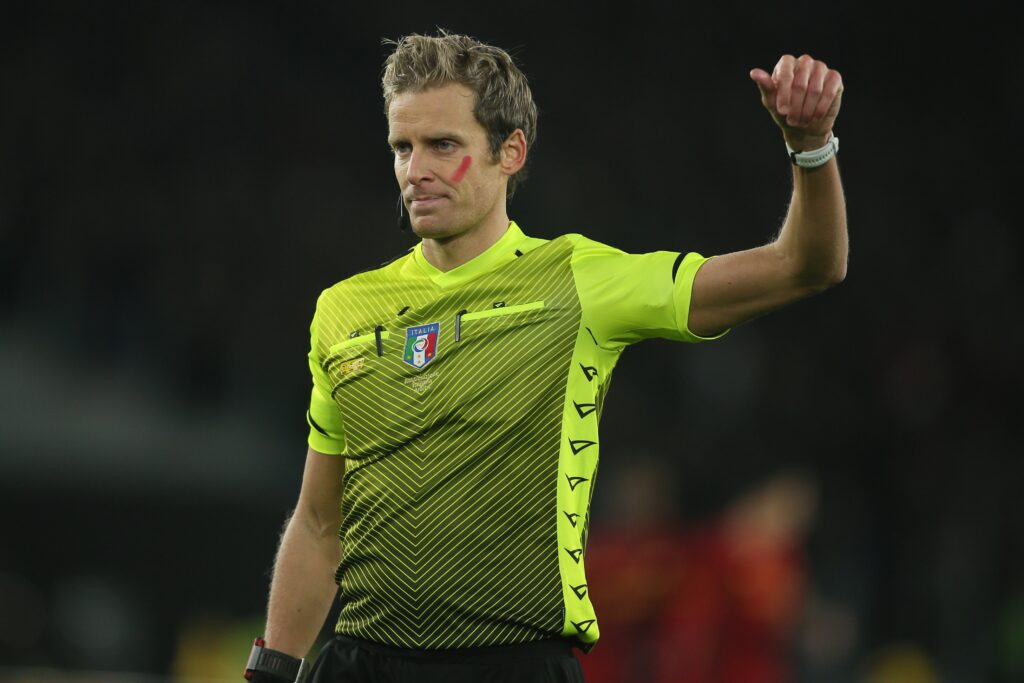Effective referees discipline with encouragement and kind words much more often than rebukes or reprimands. The goal is to empower players with regards to their conduct on the field of play.
Inevitably, though, misconduct happens. When it does, keep the collected wisdom of experienced officials in mind:
- Take a deep breath and try to remain calm. It’s natural to be overcome with frustration, resentment, and anger. But when you are, you become less rational, and your decision making is affected.
- Try to set a positive tone, even if it means you must take a few seconds to compose yourself. Acknowledge that you need time to think, time to respond.
- Make sure players understand that it’s their misconduct you dislike, not them. “You’re playing well today, don’t do anything to jeopardise your team’s position in this game”.
- Give the player or club official a chance to respond positively by explaining not only what he or she is doing wrong, but also what he or she can do to correct it.
- Never resort to blame or ridicule.
- Avoid win-lose conflicts. Emphasise ways the conduct can be managed rather than resorting straight to a caution.
- Try to remain courteous in the face of hostility or anger. Showing players and club officials that you take their concerns seriously will help you earn their respect and establish rapport.
- Treat all players and club officials respectfully and politely. Be consistent in what you let them say and do. Be careful not to favour certain players or club officials.
- Model the conduct you expect from players. Are you as considerate of players’ feelings as you want them to be of others?
- Specifically describe misconduct and help students understand the consequences of misconduct. Youth players may even need your explanations modelled or acted out.
- Be aware of cultural differences. For example, a player or club official who stares at the ground while you speak to him or her would be viewed as defiant in some cultures and respectful in others.
- Focus on recognising and rewarding good play more than punishing misconduct, you can do this by playing advantages.
- Ignore or minimise minor problems instead of stopping the game. A glance, a word as you run by, or your proximity may be enough to stop misconduct.
- Where reprimands are necessary, state them quickly and without disrupting the flow of the game.
- When it’s necessary to speak to a player about his or her conduct, try to speak in a moment away from full view; this is especially true of adolescents who must “perform” for their peers. Public rebukes often trigger exaggerated, face-saving performances.
When Personalities Clash . . .
Sometimes, despite our best intentions, we find ourselves actively disliking one of the players in our charge. The individual may be rude, disrespectful, obnoxious, or otherwise annoying. It’s just human nature; some personalities clash. But instead of feeling guilty about our feelings, we can take positive steps to improve them. Here are some of her suggestions:
- Help yourself manage negative feelings by reflecting on a past situation in your career where a similar conflict occurred. Discuss the situation with a colleague or by writing your thoughts in a journal. Making and understanding these connections can help you let go of some of your hostility or resentment.
- Use positive strategies when dealing with the player. One such strategy is addressing specific behaviours with precise language that describes what needs to be done. In addition, try to work with the player’s captain, be firm and consistent about your upholding of the Laws of The Game, and express displeasure with the player’s misconduct without criticising the individual.
- Remember, some problem players are very complex and beyond your control other than the conventional ways to deal with fouls and misconduct.
At The Third Team I work individually and in collaboration with different professionals where I have developed workshops and 1-2-1 sessions associated with Resilience and Mental Toughness Development to help referees. The workshops and 1-2-1 sessions are interactive, where referees are encouraged to open up and share their experiences to help themselves and each other.
Feel free to contact me if you’d like to know more about my workshops or 1-2-1 sessions and how I could help you or your officials.
Best Wishes,

Nathan Sherratt
Referee Educator & Managing Director of The Third Team

Nathan Sherratt
Nathan Sherratt, Referee Educator, Resilience Trainer and Managing Director of The Third Team. A Mental Toughness Practitioner based in County Durham, North East England.

